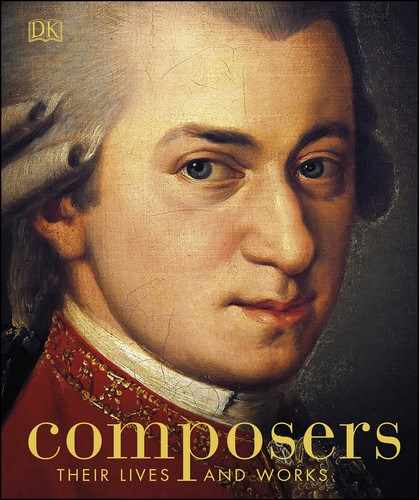Tōru Takemitsu
1930–1996, JAPANESE
The first Japanese composer to gain international renown in classical music, Takemitsu wrote concert pieces and film scores that achieved an unprecedented integration of Western and Japanese musical traditions.

TORU TAKEMITSU
Takemitsu was almost completely self-taught as a musician, but was the first Japanese classical composer to achieve worldwide acclaim.
ON TECHNIQUE
East meets West
It was with some shock that Takemitsu recognized his own Japanese cultural identity in the 1960s, and realized its relationship with his essentially Western aesthetic ideals. He began to introduce traditional Japanese instruments into works such as November Steps (1967), but also found that modern indeterminate procedures of composition were compatible with traditional Japanese performance techniques, allowing for a degree of improvisation and expressive interpretation. He also discovered that the timbres and inflections of the Japanese instruments fitted well with his Debussy-inspired sound-world.

TRADITIONAL JAPANESE BAMBOO FLUTE
Throughout his teens, Tōru Takemitsu had little or no contact with Western music, which was outlawed in Japan. He was born in Tokyo in 1930, but when he was only a few weeks old his family moved to Dalian, in Japanese-occupied Manchuria. He returned to Japan in 1938 to go to school, but was unable to complete his studies as he was conscripted at the age of 14 in anticipation of a US invasion—an experience he bitterly resented.
Rebelling against the Japanese establishment, Takemitsu and his friends listened clandestinely to a gramophone record of the French popular song “Parlez-moi d’amour,” which he cited as a formative influence. After World War II, he worked for the US occupying forces, but his fragile health meant he spent prolonged periods in hospital, where he listened to American Forces Radio and developed a taste for Western music. Aged just 16, he decided to become a musician, even though he had no musical training. Apart from a few lessons with the composer Yasuji Kiyose in 1948, Takemitsu’s skills as a composer were self-taught.
Subverting tradition
With such an unorthodox musical upbringing, he inevitably gravitated toward the unconventional, and in 1951, he cofounded a group of avant-garde artists, writers, and musicians known as Jikken Kōbō (Experimental Workshop), who rejected the traditional academic arts. For Takemitsu, this was a conscious turning away from Japanese tradition, which for him had only negative associations. Instead, he found inspiration in Debussy’s Impressionism, and in the 12-tone serial compositions of Webern and later Messiaen. A turning point came when Stravinsky heard Takemitsu’s 1957 Requiem for string orchestra, and his enthusiasm for it helped publicize Takemitsu in the West. Around this time, Takemitsu discovered the experimental music of John Cage. He became interested in Cage’s use of indeterminacy and chance in composition, and the idea of silence as a dynamic element. Ironically, it was this US composer’s work that prompted Takemitsu to reexamine Japanese traditional music, which shares many of Cage’s ideals. He began studying Japanese music and its instruments, trying to find a way of integrating them into his Western musical style.
His first major work in this vein was November Steps for biwa (a traditional Japanese lute), shakuhachi (a flute), and orchestra, premiered in 1967. During the 1970s and 1980s, a catalog of compositions appeared in which Takemitsu refined his style, combining Japanese and Western elements to varying degrees. The aim in his later works was to create a “sea of tonality,” a musical link between East and West, as in his “Waterscape” and “Dream” cycles of works.
Always physically frail, Takemitsu was diagnosed with bladder cancer in the mid-1990s; he also contracted pneumonia, and died in 1996, aged 65.

JAPANESE GARDEN
According to Takemitsu, “Listening to my music can be compared with walking through a garden and experiencing the changes in light, pattern, and texture.”
